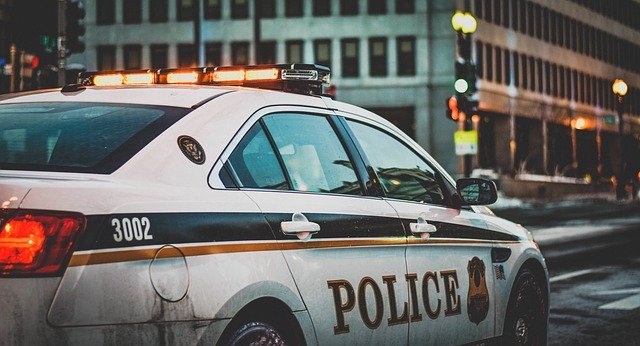
31 Aug Should Law Enforcement Be Held Accountable for Its Actions?
Qualified immunity is the term used for a legal shield for police officers accused of violating the constitutional rights of citizens. It was created by the US Supreme Court, not Congress, and makes it extremely difficult to hold police officers accountable for recklessness and bad judgment that can end lives and leave people severely injured. This doctrine has blocked possibly thousands of potential plaintiffs from seeking redress over the years.
Second only to COVID-19 and its impact on the nation, this year’s news coverage is focused on:
- The death of George Floyd after being brutalized by police officers
- Breonna Taylor’s death in a crossfire in her apartment between her boyfriend and police officers (who may or may not have announced themselves before bursting into her apartment in the early morning with a search warrant)
- The shooting of Jacob Blake seven times in the back after he resisted arrest
- The subsequent protests after these events
What is qualified immunity?
Might surviving family members or Mr. Blake have a good chance to successfully sue police officers for constitutional violations? Probably not, in light of qualified immunity given to government employees (including law enforcement) which, in most parts of the country (depending on which circuit court of appeals covers to your state), makes it extremely difficult to successfully claim law enforcement violated 42 U.S. Code § 1983.
Boston public radio station WBUR interviewed Nancy Gertner, a retired federal judge, a legal analyst for the station, and a senior lecturer at Harvard Law School, on qualified immunity. She said the Supreme Court added substantial hoops for plaintiffs to jump through in 1967 out of concern it wouldn’t be a good idea to hold officers accountable for violating constitutional rights at a time when they were continually evolving.
To establish liability now it comes down to if there’s an existing precedent on the specific fact in question. Gertner cites as an example a home destroyed by tear gas grenades. A SWAT team used them in hopes of flushing out someone wanted for a crime. But the house was empty. The Appellate Court reviewing the case found no constitutional violation because there was no legal precedent concerning tear gas and houses.
Qualified immunity allows a dismissal without a case being litigated or going to a jury. In the past, judges had to determine whether a plaintiff’s rights were violated, and if so, whether the law was clearly established. Now the issue of violated rights is skipped and judges go right to the second issue. It’s almost impossible to set a precedent if, in the past, there was no precedent.
Accountability = Incentive to Improve
As qualified immunity has gutted civil lawsuits for damages due to constitutional violations, what’s left is financial recovery after successful criminal charges against an officer. Gertner equates this with being unable to sue a surgeon for leaving instruments in a patient unless it’s also a crime. “We’re talking about civil damages for violation of a constitutional right. So the fact that people can be sent to jail doesn’t control conduct. What controls conduct is lawsuits,” Gertner says.
She says nearly all civil lawsuits against officers are paid by their employers and sometimes their unions, so they don’t pose a financial threat to the individual officer. Insurance could cover these kinds of claims, so settlements and verdicts could increase premiums. But the added cost is an incentive for departments and agencies to ensure their officers use more care and do a good job.
The current system doesn’t prevent the costs of violating constitutional rights. It shifts them from law enforcement to others. The economic burden of police officers violating individuals’ constitutional rights are borne by victims, their families, their medical insurers, Medicaid, or Medicare. If they can’t earn a living due to injuries, they may collect welfare, food stamps, or qualify for Social Security disability benefits. The current system is a subsidy for poor law enforcement practices because police agencies aren’t paying the cost of their mistakes, there’s no accountability and less incentive to improve.
Potential legal claims and how qualified immunity might end or be limited
How many legal claims might be successful if qualified immunity ends? No one knows, but the Los Angeles Times reports law enforcement actions are the leading cause of death of young Black Americans. It’s estimated 1,348 people suffered arrest-related deaths from June 2015 to March 2016, according to the Bureau of Justice Statistics, reports CNN. There could also be claims based on injuries and damage or destruction of property. Hopefully, only a small share of these deaths, injuries, and property damage are the result of victims’ constitutional rights being violated.
Individual states could bar qualified immunity like Colorado did. On the federal level, ending it probably depends on which party controls Congress and the White House. If this is an important issue for you, find out the positions of your local Congressional candidates and decide accordingly.
The Democratic party platform calls for criminal justice reform, including “reigning in” qualified immunity, according to Reason. There is no Republican party platform, but the White House has called proposals to end qualified immunity a “nonstarter,” reports CBS News. If you vote based on your clients’ and your interests, you know how to vote.
I practiced law for 16 years. If you or your law firm want content related to constitutional law, or another legal area, please contact me today at 267-393-4145 so we can talk about what you need and how I can help.
